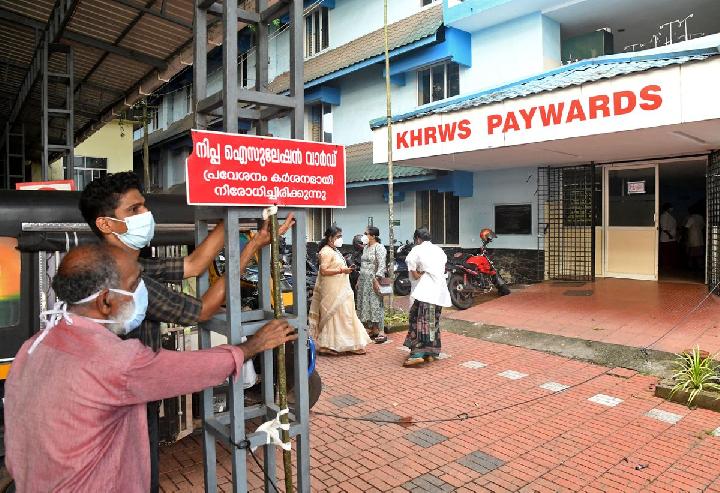The southern Indian stateof Kerala closed several schools, offices and public transportation on Wednesday, September 13 2023, to control the spread of therare and deadly Nipah virus because it damages the brain. So far two people have died from this virus.
One adult and one child remain infected in hospitals, and more than 130 people have been tested for the virus, which spreads through direct contact with the bodily fluids of infected bats, pigs or humans, a state health official said.
“We are focusing on contact tracing of infected people early and isolating anyone with symptoms,” said Kerala Health Minister Veena George.
“People’s movement has been restricted in several parts of Kerala to tackle the medical crisis.”
Two infected people have died since August 30 in the fourth virus outbreak in the state since 2018, forcing authorities to declare isolation zones in at least seven villages in Kozhikode district.
Strict isolation rules are in place, with medical staff quarantined after direct contact with infected people.
The first victim was a small land owner in Marutonkara village in the district, a government official said. The victim’s daughter and brother-in-law, both infected, are in isolation, while other family members and neighbors are undergoing tests.
The second death occurred after contact at the hospital with the first victim, based on a doctor’s initial investigation, said the official, who did not want to be named because he was not authorized to speak to the media.
Three federal teams, including experts from the National Institute of Virology, are scheduled to arrive Wednesday to conduct further tests, the official said.
The Nipah virus was first identified in 1999 when there was an outbreak of disease among pig farmers and other people who had close contact with the animals in Malaysia and Singapore.
In Kerala’s first Nipah outbreak, 21 of 23 infected people died, while outbreaks in 2019 and 2021 claimed two more lives.
Reuters in May reported parts of Kerala as among the places most at risk globally for bat virus outbreaks. Extensive deforestation and urbanization have brought humans and wildlife closer together.
Source : Tempo.co
















